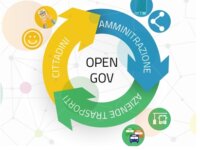Lisbon City Council is one of the 10 largest public purchasers in Portugal. The relevance of public procurement in the municipal activity led to the development of an internal portal - the Collaborative Purchasing Portal - to bring together all those who work in this area. With this Portal, the Lisbon City Council intends to foster an environment of trust, knowledge and sharing, and to strengthen the mission of its workers and the ties that unite them in a digital environment.
Innovation Tag Opengov: co-ordination
GovTech Poland has developed world's first challenge based procurement model where the authors of the best idea receive a full implementation contract without the need for an additional cumbersome tender. With the goal of opening procurement to all creative individuals, the model covers the process from identification to implementation. A pilot run, tested in both central and local institutions has increased SME participation in procurement processes by an average of 1600% (in a sample of 250)…
A new waste management system, driven by information. Bogota has evolved its cleaning and recycling scheme, generating a profound transformation in the way in which citizens needs are met and garbage collection is managed. This model is based on the effective use of data and information. This initiative has allowed greater transparency in the actions of involved public and private organizations, an intense collaboration to provide the best service and enabling citizens active participation.
Education in Open Government is a project whose main objective is to foster social and civic competences for the exercise of one's democratic citizenship in children and young people. It involves three phases:
1) Teachers' training via a massive online open course (MOOC).
2) Implementation of educational projects in schools: for this purpose, 3 guides of Education in Open Government have been published: Primary Education, Secondary Education and High School.
3) Evaluation of the experiences.
Sardinia Region involved all the mobility stakeholders in participating in the “federated network of collective transport open data” and all the data concerning scheduled services were published: buses, trains, ferries, airplanes. Various info-mobility services were developed by ICT enterprises. A web application was developed to allow users to notify transport inefficiencies to agencies and public administration, which are now interconnected with users in order to improve public service…


